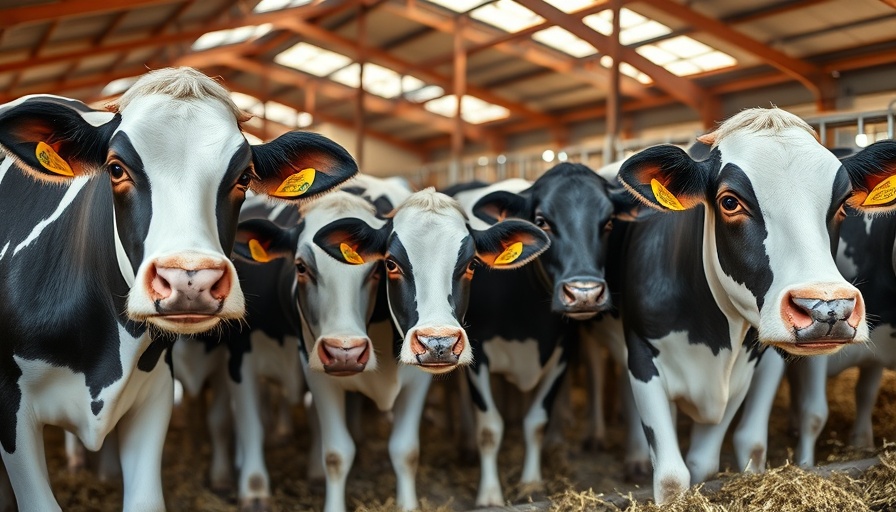
Understanding the New Bird Flu Strain in Dairy Cows
Recently, a new variant of the H5N1 bird flu, dubbed D1.1, has raised alarms as it was detected in dairy cows in parts of Nevada. This discovery marks the first identification of this strain in cattle and has thrust concerns about viral mutations and transmission into the spotlight. As we navigate this emerging issue, it’s crucial to understand the implications for our food supply and our health.
Impacts on Milk and Beef Consumption
Despite the stir caused by the discovery of the D1.1 strain, experts assure consumers that milk and beef remain safe to eat. The stringent inspection protocols enforced on dairy cattle and the pasteurization process for milk significantly reduce the risk of any harmful pathogens. These safety measures play crucial roles in maintaining food safety standards and ensuring that our dairy products are safe for consumption.
Human Health Concerns
While government sources suggest the risk of bird flu transmission to humans is low, caution is warranted. The Centers for Disease Control and Prevention (CDC) has documented a limited number of human cases linked to this outbreak, primarily among individuals who have direct contact with infected animals. This signifies the importance of vigilance in monitoring any potential spread of the virus and staying informed about safety guidelines.
The Role of Dairy Farmers
Dairy farmers are at the frontline of managing this situation. Given that the risk remains low, proper handling and cooking of dairy products, as well as encouraging humane animal husbandry practices, are important for consumer safety. Farmers and processing facilities are continuously adapting to new guidelines to ensure maintaining the quality and safety of the food they provide.
Moving Forward
The evolution of viruses like H5N1 necessitates ongoing surveillance and research. As consumers, staying informed about such health trends empowers us to make educated choices regarding our diets. Our food supply chain is robust, and with the appropriate measures in place, we can continue to enjoy milk and beef safely.
 Add Row
Add Row  Add
Add 




Write A Comment